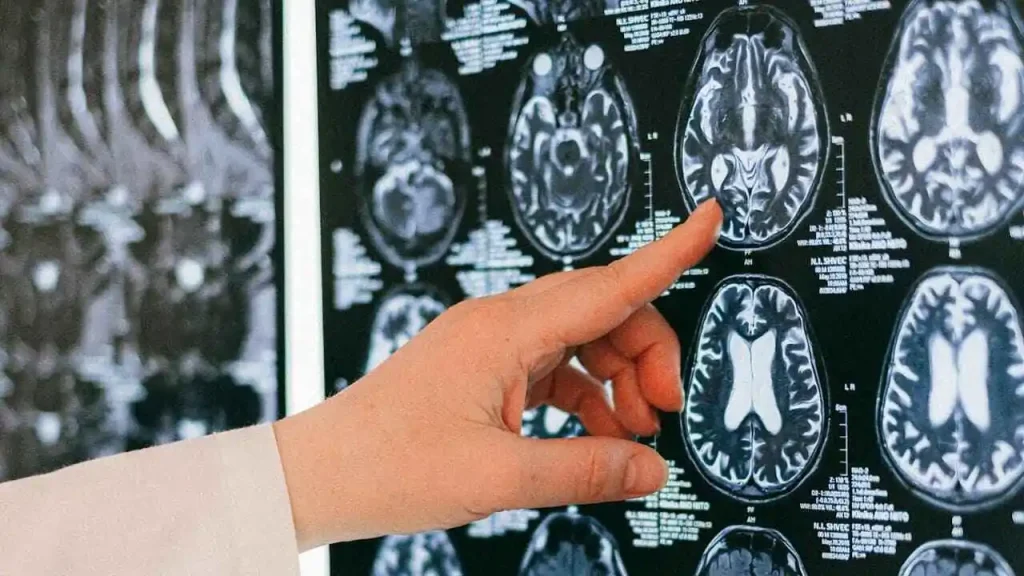Recent advancements in the study of aging have seen the introduction of the DunedinPACNI, a breakthrough tool developed by researchers from prestigious institutions such as Duke, Harvard, and the University of Otago. This innovative tool employs artificial intelligence (AI) to analyze brain scans, providing a remarkable insight into how quickly a person is biologically aging. With the potential to revolutionize preventative healthcare, DunedinPACNI offers a glimpse into the future of age-related health management.
| Article Subheadings |
|---|
| 1) The DunedinPACNI: A New Tool in Aging Research |
| 2) Understanding the Link Between Brain Aging and Health Risks |
| 3) Transforming Preventative Healthcare with AI |
| 4) Implications for Future Healthcare Strategies |
| 5) Summary of Key Insights |
The DunedinPACNI: A New Tool in Aging Research
The DunedinPACNI, an acronym for Dunedin Multi-Generational Study, marks a significant breakthrough in aging research, merging AI and medical science. This tool sprang from decades of comprehensive data analysis involving over 1,000 participants tracked since the 1970s. Researchers examined various health indicators, including but not limited to blood pressure, body mass index (BMI), cholesterol levels, and more.
The key feature of DunedinPACNI is its ability to create a unique “aging score” for each participant. This score serves as a predictive measure of biological age, allowing researchers to better understand the physiological changes associated with aging. The AI component enhances the accuracy of this score through MRI scans taken at the age of 45, helping to identify potential health risks long before symptoms emerge.
Understanding the Link Between Brain Aging and Health Risks
The findings from the Dunedin PACNI suggest a strong correlation between brain aging and overall health risks. Participants with accelerated aging scores exhibited early signs of cognitive decline, including notable shrinkage of the hippocampus, an area of the brain essential for memory and learning. These observations were further corroborated by subsequent studies involving individuals aged 52 to 89.
The research indicated alarming statistics: individuals whose biological aging progressed rapidly were 60% more likely to develop dementia, 18% more susceptible to chronic illnesses, and 40% more likely to die within the same timeframe compared to their slower-aging counterparts. These data points underline the crucial relationship between brain health and overall physical decline, highlighting the importance of early detection methods like DunedinPACNI.
Transforming Preventative Healthcare with AI
DunedinPACNI has the potential to reshape the future of preventative healthcare. By recognizing health risks at an early stage through AI-powered brain scans, healthcare providers can guide at-risk individuals towards healthier lifestyle choices, including improved diet, increased physical activity, and stress management techniques.
This tool not only empowers individuals to take charge of their health but also aids healthcare professionals in evaluating treatment efficacy and monitoring the progression of age-related diseases. The proactive approach enabled by DunedinPACNI could pave the way for personalized healthcare solutions tailored to individual needs, moving away from the traditional reactive models.
Implications for Future Healthcare Strategies
As chronic diseases and aging populations become increasingly prevalent, the implications of the DunedinPACNI are profound. It may help clinicians identify patients who could benefit from interventions long before they reach a critical health state. This could significantly reduce the burden on healthcare systems, leading to better resource allocation and more effective care.
Moreover, the implementation of such AI technology in healthcare protocols can facilitate a broader understanding of aging as a multifaceted process influenced by an interplay of genetic, environmental, and lifestyle factors. In turn, this could promote further research into innovative treatment options and preventive measures that could extend healthy years of life.
Summary of Key Insights
In conclusion, the DunedinPACNI offers a unique, non-invasive window into biological aging that extends beyond traditional blood tests and health assessments. The ability of a single AI brain scan to deliver comprehensive health insights presents a timely opportunity for healthcare advancements, particularly in relation to the rising rates of chronic diseases.
| No. | Key Points |
|---|---|
| 1 | DunedinPACNI utilizes AI to assess biological aging through brain scans. |
| 2 | Study links accelerated brain aging to increased risk for dementia and chronic illnesses. |
| 3 | AI-driven assessments can enhance preventive healthcare strategies. |
| 4 | Empowers individuals and healthcare providers with actionable health insights. |
| 5 | Offers a new perspective on aging research and healthcare resource allocation. |
Summary
The emergence of DunedinPACNI marks a transformative step in how we understand and address the complexities of aging. By leveraging artificial intelligence, this groundbreaking tool not only enhances our predictive capabilities regarding biological aging but also fosters a preventative approach toward health management. As healthcare continues to evolve, DunedinPACNI stands at the forefront of an era where data-driven insights can significantly impact quality of life.
Frequently Asked Questions
Question: What is DunedinPACNI?
DunedinPACNI is a predictive tool that evaluates biological aging through AI-enhanced brain scans, allowing for early detection of health risks related to aging.
Question: How can DunedinPACNI help in healthcare?
By identifying health risks early, DunedinPACNI enables individuals to make proactive lifestyle changes and allows healthcare providers to develop personalized treatment strategies.
Question: What risks are associated with accelerated brain aging?
Studies indicate that individuals experiencing accelerated brain aging are more likely to develop dementia, chronic illnesses, and have an increased mortality risk.


